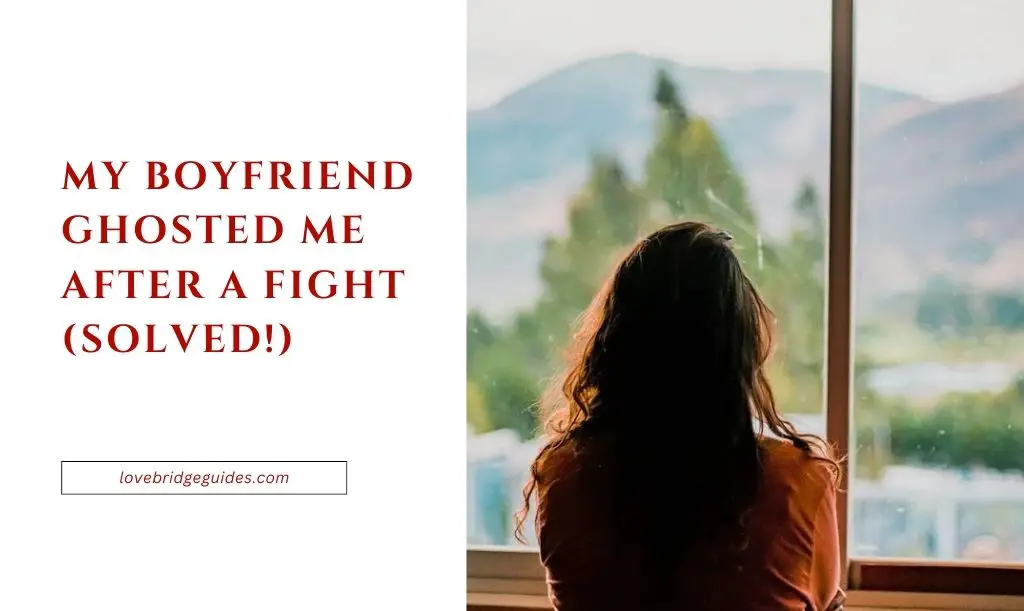‘My boyfriend ghosted me after a fight’
Before we delve further into this situation, let us establish some clarity here: ghosting is when one person abruptly ends all communication with another without any explanation or closure.
It’s like walking out on a conversation mid-sentence and never returning to finish it.
To be ghosted means to be left bewildered and abandoned, searching for answers that may never come.
It’s an emotional slap in the face that leaves scars on one’s heart and damages trust in future relationships.
Understanding Ghosting: The Psychology Behind It
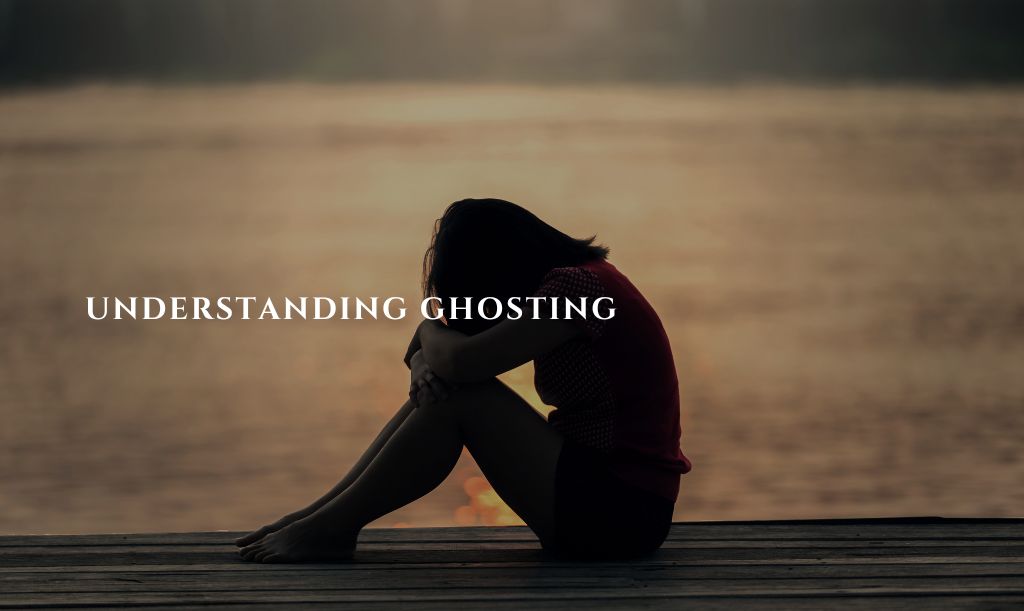
It is quite baffling how some individuals would rather vanish into thin air than confront the aftermath of a heated argument.
Ghosting, in the context of relationships, is an act that reeks of cowardice.
Instead of facing the consequences of their actions or engaging in a mature conversation, these ghosters choose to retreat into a state of avoidance.
But why?
What drives this fear of confrontation?
It boils down to an inherent aversion to discomfort and unease.
Confronting someone means exposing oneself to vulnerability, acknowledging one’s faults, and potentially facing rejection or criticism.
For those who lack emotional maturity or are afraid to delve into uncomfortable territory, ghosting becomes an appealing escape route.
Fear of Conflict Resolution and Emotional Vulnerability
Conflict resolution requires a certain level of emotional intelligence and vulnerability that not everyone possesses or is willing to cultivate.
Engaging in healthy conflict resolution necessitates acknowledging one’s feelings, empathizing with the other person’s perspective, and working towards finding common ground or compromise.
However, for those plagued by insecurities or fear the vulnerability that comes with expressing their emotions authentically, conflict resolution becomes a daunting task.
Consequently, they choose ghosting as their modus operandi – abruptly severing all ties without any explanation – shielding themselves from dealing with difficult emotions and avoiding any chance for resolution.
Psychological Defense Mechanisms at Play During a Fight
When tension rises during an argument, our minds instinctively activate various psychological defense mechanisms as protective shields against emotional harm.
These defenses manifest in different ways depending on individual coping strategies and underlying psychological factors.
Some individuals may resort to projection by blaming everything on their partner while refusing to acknowledge any contribution to the issue at hand.
Others may employ denial, minimizing the severity of the fight or feigning ignorance of its impact.
Regardless of the defense mechanism employed, ghosting becomes a way to avoid confronting the truth and facing any potential emotional discomfort that might arise from acknowledging one’s role in the dispute.
It is an escape from personal accountability and a refusal to engage in introspection.
As we explore the psychology behind ghosting after a fight, it becomes evident that fear, avoidance, and psychological defense mechanisms play significant roles in this behavior.
But let us not mistake these explanations as justifications for such actions.
Ghosting remains an immature and hurtful response that denies closure and emotional growth for both parties involved.
It is crucial to address these underlying issues and foster healthier communication patterns to build stronger, more resilient relationships.
Ghosting as a Coping Mechanism: Escaping Emotional Turmoil
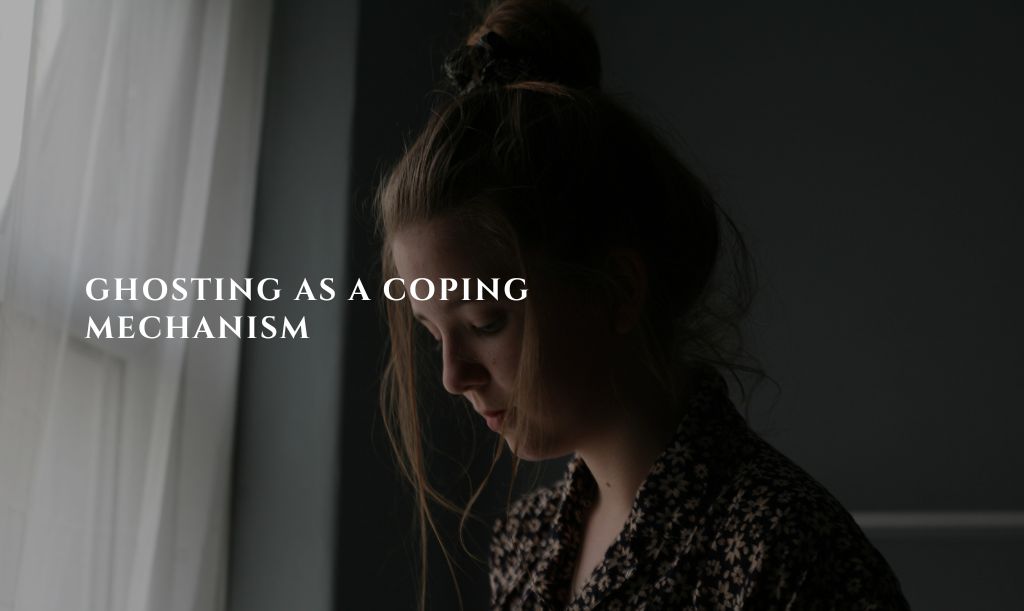
When it comes to ghosting, we must delve into the dark recesses of human behavior and confront the uncomfortable truth that it is often used as an escape hatch from emotional turmoil.
In the aftermath of a heated argument, both parties are left reeling with overwhelming emotions and a gnawing sense of vulnerability.
Ghosting, cruel though it may be, offers a temporary respite from this chaos.
It allows one to distance oneself from the turmoil and momentarily alleviate the pain that accompanies facing difficult emotions head-on.
It becomes a soothing balm for those who lack the emotional fortitude to confront their own feelings and engage in healthy dialogue.
Avoidance As A Means To Protect One’s Emotional Well-Being
Avoidance,, is both an art form and a defense mechanism.
By vanishing into thin air after a fight, individuals seek refuge in their self-imposed isolation.
They believe that by avoiding confrontation and shutting down communication channels, they can shield themselves from further emotional harm.
In their misguided attempt at self-preservation, they build towering walls around their hearts, barricading themselves against potential pain or discomfort.
This act of avoiding confrontation not only protects them momentarily but also reinforces an unhealthy pattern where genuine connection and growth are sacrificed on the altar of fear.
The Illusion Of Control Through Disappearing From The Situation
Ghosting provides an illusory sense of power over one’s circumstances – an opportunity to dictate when and how interactions occur (or cease to occur).
When someone disappears without warning after a fight, they leave their partner grasping at straws for answers or closure.
This power play allows the ghoster to revel in a twisted sense of superiority.
They hold the reins, manipulating the emotions and expectations of their partner as they see fit.
However, let us not be fooled by this facade; it is a shallow grasp at control that ultimately crumbles under the weight of its own deception.
For genuine strength lies not in vanishing but in confronting challenges head-on and engaging in open, honest communication.
Remember that ghosting may provide fleeting relief and an illusion of control, but it is merely a Band-Aid over emotional wounds that require proper care and attention.
The Aftermath: Navigating Through Uncertainty
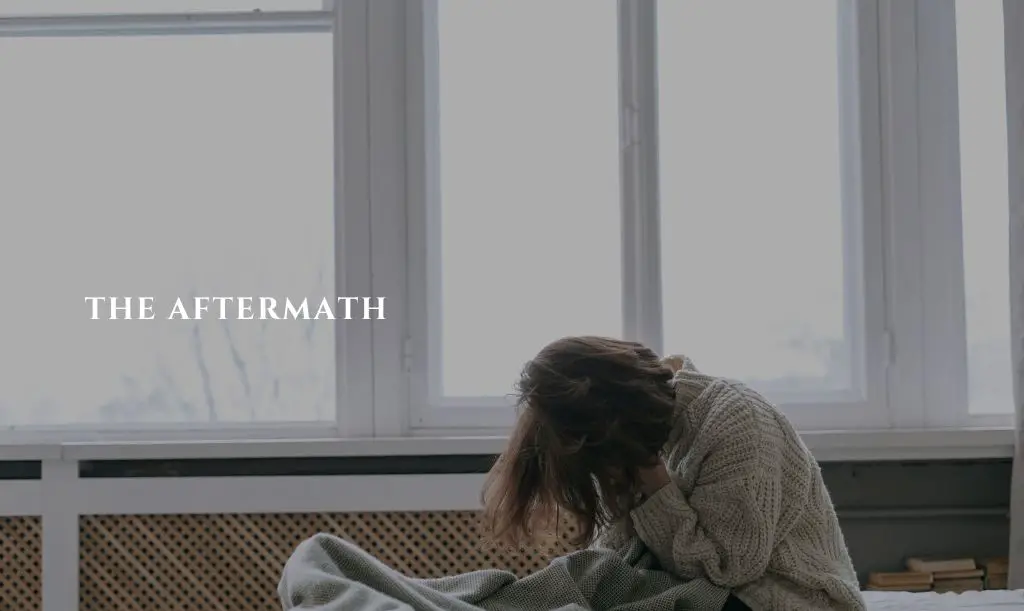
Imagine the agony of feeling rejected!
It’s like a punch to the gut, leaving you breathless and questioning your worth.
When your boyfriend ghosted you after a fight, it’s natural to be overwhelmed by feelings of rejection and confusion.
You start questioning everything: What did I do wrong? Am I not good enough?
But here’s the thing, his ghosting is not a reflection of your worth or value as an individual.
It says more about his inability to communicate effectively and handle conflicts maturely.
Self-Reflection On Personal Growth Opportunities
Instead of wallowing in self-pity, take this ghosting incident as an opportunity for self-reflection and personal growth.
Ask yourself: What can I learn from this experience?
How can I become stronger and more resilient in dealing with future conflicts?
Sometimes, these painful moments act as catalysts for personal transformation.
Embrace them!
Use this time to evaluate your own behavior during that fight.
Were there things you could have handled differently?
Take ownership of your actions and identify areas where you can grow as an individual.
Seeking Support From Friends, Family, Or Professionals
In times of emotional turmoil, seeking support is crucial.
Surround yourself with people who genuinely care about your wellbeing – friends who uplift you with their unwavering support and family members who provide comfort during these difficult times.
Don’t hesitate to lean on them; they are there for you!
Additionally, consider seeking professional help if needed.
Therapy can be incredibly helpful in processing emotions and gaining clarity during such challenging situations.
Remember this: You are not alone in navigating through the uncertainty caused by being ghosted after a fight.
Reach out to those who love and care for you, and don’t be afraid to seek professional guidance if necessary.
The Ripple Effect: Impact on Future Relationships
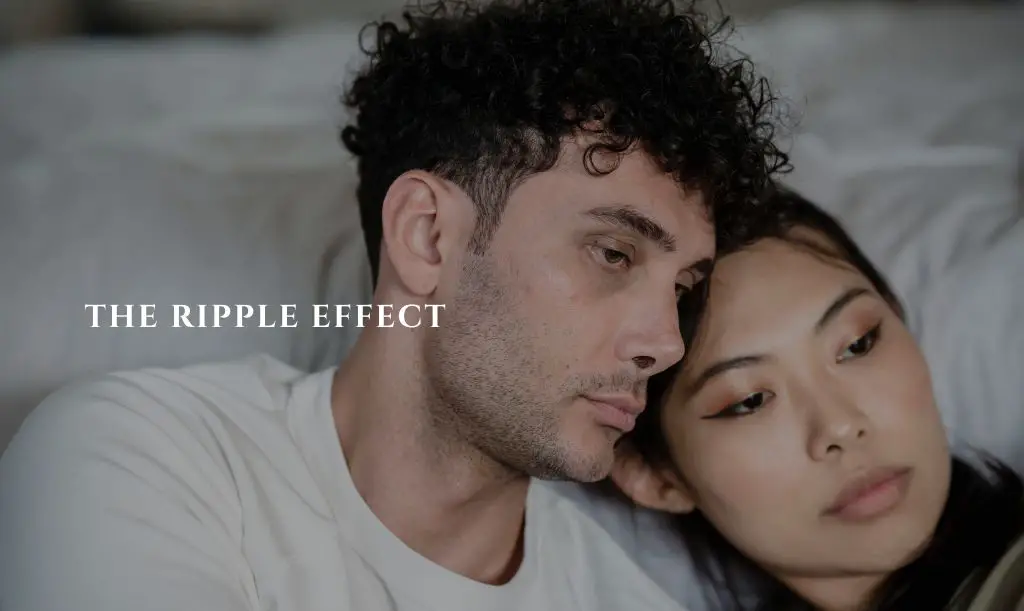
The aftermath of being ghosted after a heated argument is like being left stranded in a stormy sea, with no lifeline to grasp onto.
One of the most devastating consequences is the profound impact it has on our future relationships.
Trust, once shattered, becomes an elusive butterfly that flutters just out of reach.
The fear of vulnerability intensifies as we guard our hearts with high walls and impenetrable armor.
Being ghosted after a fight not only erodes our trust in that particular person but also leaves us questioning the authenticity and reliability of future partners.
We become skeptics, questioning every affectionate gesture or kind word.
The wounds from this betrayal seep into every facet of our lives and color every interaction we have with potential romantic interests.
Impact On Self-Esteem And Ability To Open Up In Future Relationships
The aftermath of being ghosted after a fight leaves behind scars that run deep into our self-esteem.
We question our worthiness, replaying the events over and over again in search of answers that may never come.
We wonder if we were too demanding or perhaps not enough for someone to overlook our flaws.
Our ability to open up becomes crippled by this traumatic experience.
We become hesitant to reveal our true selves for fear of another abandonment looming over us like an ominous cloud.
Vulnerability requires courage, but when we have been burned by someone who was supposed to care for us, that courage wanes significantly.
Importance Of Setting Healthy Boundaries To Prevent Similar Situations
Now let me be clear – being ghosted after a fight is never your fault alone!
However, it is essential to recognize patterns and learn from past experiences.
Healthy boundaries act as protective barriers against potential heartache.
Establishing clear guidelines and expectations in relationships can prevent us from falling into the same trap again.
Boundaries involve understanding our own emotional needs and communicating them effectively to our partners.
It means being assertive, not aggressive, in expressing our desires and limits.
By setting healthy boundaries, we create an environment where love, respect, and open communication can flourish.
It’s about recognizing our worth and refusing to settle for anything less than we deserve.
Ghostbusting Techniques: Strategies for Healing and Moving Forward
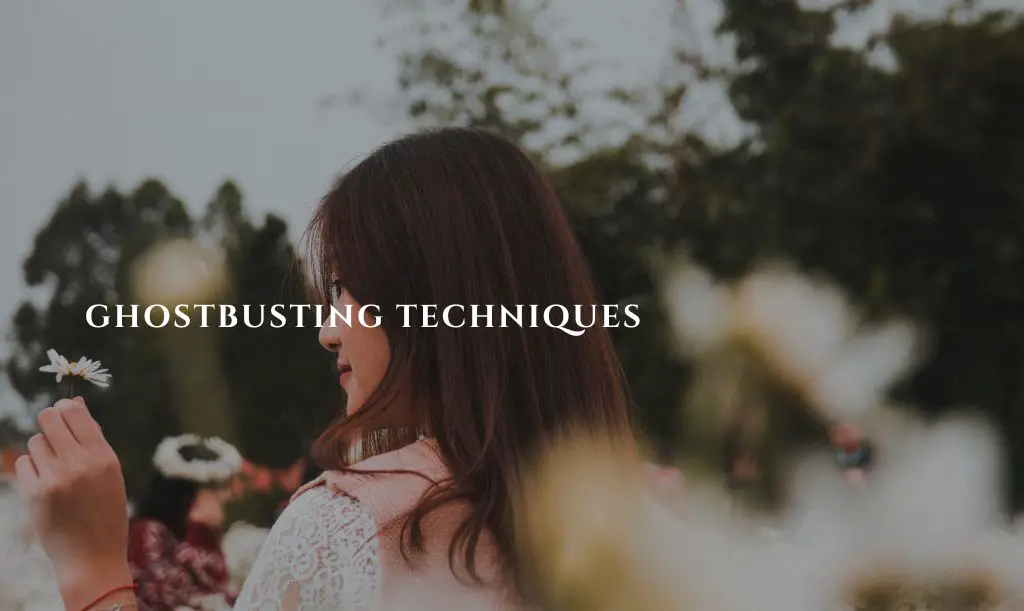
Firstly, it is essential to acknowledge your feelings and allow yourself to grieve.
It may seem counterintuitive, but allowing yourself to feel the pain will ultimately help you heal.
Venting your emotions through journaling or talking with a trusted friend can provide much-needed relief.
Remember, you are not alone in this journey; countless individuals have faced similar situations.
Self-Care Practices Including Mindfulness, Exercise, Or Creative Outlets
To emerge stronger from the ashes of ghosting, self-care must become your weapon of choice.
Engaging in mindfulness techniques such as meditation or deep breathing exercises can help calm an anxious mind and restore inner peace.
Additionally, channeling your energy into physical activities like exercise can release endorphins and lift your spirits.
Sweat out that frustration at the gym or take a refreshing jog in nature’s embrace.
Furthermore, embracing creativity through artistic endeavors like painting or writing allows for catharsis and self-expression- turning pain into something beautiful.
My Boyfriend Ghosted Me After A Fight: Conclusion
‘My boyfriend ghosted me after a fight. What does it mean?’
While being ghosted after a fight may leave one feeling abandoned and disheartened, it is crucial to remember that it is not a reflection of your worth as a person.
Ghosting is an act of immaturity on the part of the person who chooses to disappear rather than confront their conflicts head-on.
However painful it may be initially, this experience also presents an opportunity for growth and self-discovery.
By implementing these ghostbusting techniques – acknowledging your emotions, practicing self-care through mindfulness and physical activity, and embracing creative outlets – you can navigate the aftermath of being ghosted with resilience and strength.
Remember, you have the power within you to heal and thrive.
Allow this experience to shape you into a more resilient individual who values open communication and emotional integrity.
The right person will come along, someone who appreciates your worth and is willing to confront challenges together.
So dust off that ghostly residue, hold your head high, and step boldly into a future filled with authentic connections.
Related Articles:
- https://lovebridgeguides.com/when-a-guy-has-a-soft-spot-for-you/
- https://lovebridgeguides.com/when-a-guy-says-there-is-no-connection/
- Does A Prom Date Mean Anything? (Answered!) - 20 February 2024
- Boyfriend Refers To Me In Third Person (Explained!) - 20 February 2024
- Is Sending Memes Flirting? Find Out Here! - 20 February 2024

